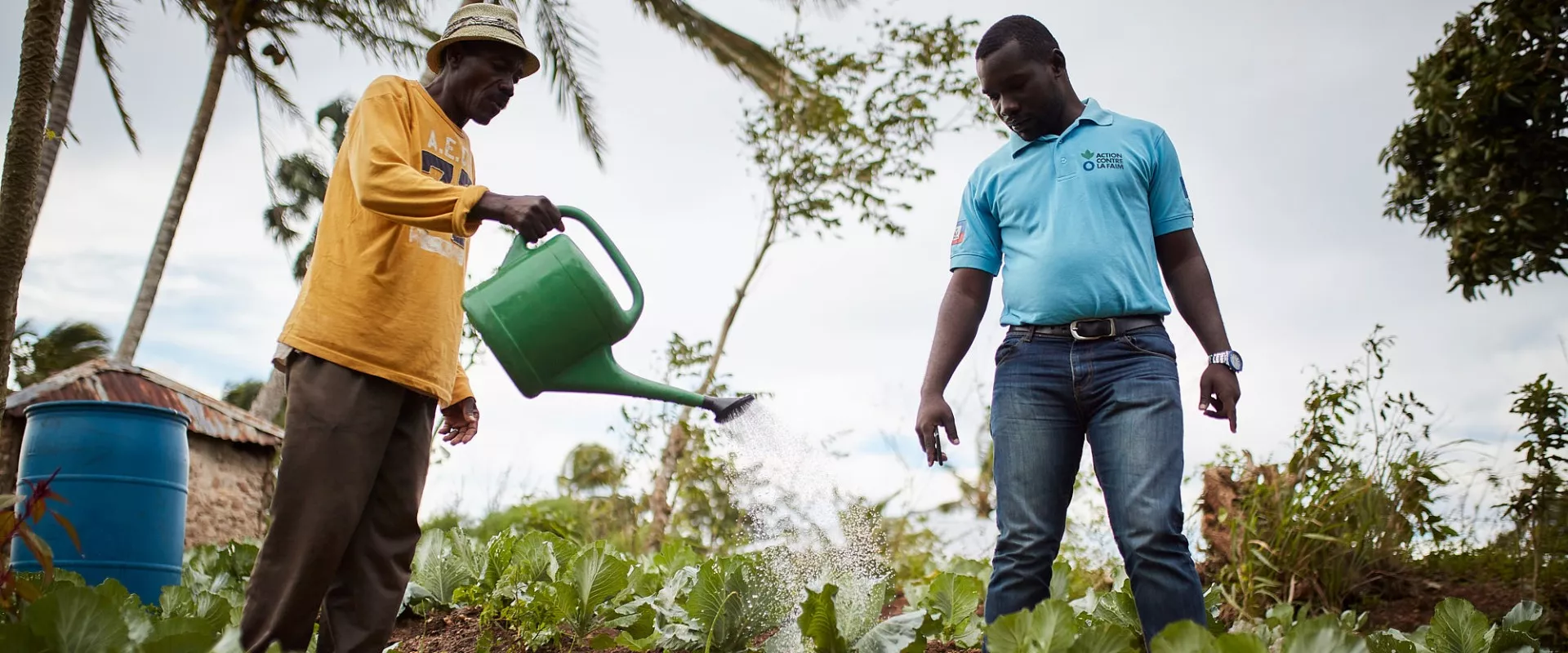Across Haiti, half of the population is now facing high levels of acute food insecurity, according to a new report released today from the Integrated Food Security Phase Classification (IPC), an independent committee of food security and nutrition experts from the United Nations, governments and NGOs, including Action Against Hunger, the international charity and leader in the movement to end hunger, which has been operating in Haiti since 1985.
The report also reveals that 1.64 million people are one step away from famine. Weeks of unprecedented violence have closed the airport and shipping in Port Au Prince, paralysing the nation’s capital and largest city and having devastating impacts throughout the country. The insecurity has forced an estimated 362,000 people to flee their homes.
“The latest report from the UN shows that armed violence, rising food prices and falling agricultural production have combined to leave Haitians on the precipice of a humanitarian catastrophe. A lasting political solution is urgently needed to restore order and bring the surging violence to an end, along with an accelerated delivery of humanitarian supplies into safe areas such as Cape Haitien. It’s not too late to avert disaster in Haiti.” said Martine Villeneuve, Action Against Hunger’s Country Director for Haiti.
Food, fuel, and other essentials aren’t reaching markets and hunger levels are rising across Haiti as fewer commodities arrive in Port-au-Prince for distribution nationwide. Rising prices, lower crop yields due to drought, and a shortfall in global humanitarian assistance have also contributed to the dramatic deterioration in food insecurity.
Haiti imports between 50% to 85% of its food—depending on the crop, the season, and the situation on the ground—which means that thousands in this impoverished country are particularly vulnerable to inflation and price volatility in international markets. Even before the current crisis, inflation over the last two years reached 48% and it only continues to increase.
Weakness in the gourde, Haiti’s currency, and the additional costs of security mean consumer prices for major food products are significantly higher than in neighbouring countries. While limited aid is making its way into the country by helicopter, that approach is not a long-term solution as it is extremely complex, expensive, and unsustainable.
Action Against Hunger is urging local, national, and regional actors to arrange expedited humanitarian supplies and food shipments through secondary ports and airports, notably Cap Haitien. While smaller ports may not be a perfect solution, new approaches are essential to help address the current crisis.
In addition to advocating to effective approach to meet immediate needs, Action Against Hunger also is calling for funding for programs that can promote food security and reduce the reliance on imports. The charity provides seeds and supplies to help people plant relatively fast-growing and nutritious foods like tomatoes and cucumbers. It also sees the potential for investments in cash crops like cassava and peanuts, which can provide a source of income and jobs.
Despite the growing need, aid to Haiti has decreased dramatically. In 2023, only 34% of Haiti’s hunger-related funding appeals were fulfilled, leaving a hunger funding gap of 66%. So far this year, the Humanitarian Response Plan for Haiti has received only 6.5% of funding requested. Donations are essential to save lives and enable a concerted response from NGOs in the country.


